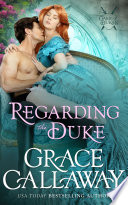In this installment from A Treatise on Politeness, etc (1813) authored by A Lady, we learn about the principles of good-humored teasing and other social niceties. In particular, raillery is likely too difficult for most people to accomplish without offense. And besides, genteel people don’t laugh.
In our work to pull together Cant: Regency Era Dictionary and Thesaurus we were astounded by how many words there were for fool or foolish person making it clear this was both a common insult and a thing remarked upon in early 19th Century life. This is echoed below by the idea that men prefer a buffoon to a wise man, although the fool will never earn their esteem.









